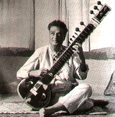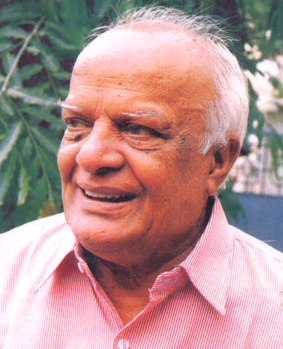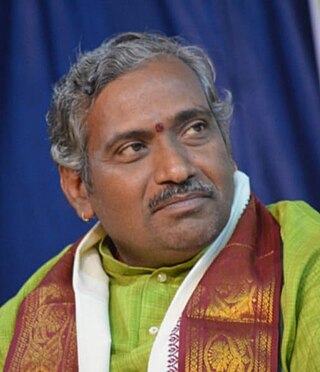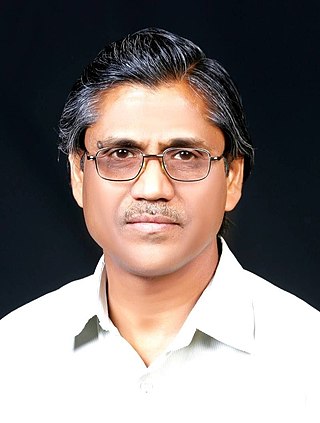
Sangeet Natak Akademi is the national level academy for performing arts set up by the Government of India.

Telugu theatre is Indian theatre in the Telugu language, based in the states of Andhra Pradesh and Telangana. Gurajada Apparao wrote the play, Kanyasulkam in 1892, which is often considered the greatest play in the Telugu language. C. Pullaiah is cited as the father of Telugu theatre movement.
Sripada Pinakapani, was a medical doctor, administrator, professor in medicine, and carnatic musician. He received Sangeetha Kalanidhi award in 1983.

Dwaram Venkataswamy Naidu was an Indian violinist in the Carnatic classical tradition. Known for his refined bowing technique and expressive playing, Naidu was one of the most celebrated violinists of the 20th century in Carnatic music. He was the recipient of several prestigious awards, including the Sangeet Natak Akademi Award in 1953 and the Padma Shri in 1957. Despite being partially blind, Naidu achieved international recognition and influenced many students and musicians during his career. Several members of his family are also notable Carnatic violinists.

Tikkavarapu Subbarami Reddy is an Indian industrialist, politician, film producer, and a philanthropist. In 1993 he produced the Sanskrit film Bhagavad Gita, which garnered the National Film Award for Best Feature Film at the 40th National Film Awards.
The Sangeet Natak Akademi Fellowship, also known as Akademi Ratna Sadasyata, is an Indian honour for the performing arts presented by Sangeet Natak Akademi. It is "the most prestigious and rare honour" conferred by the Akademi and is "restricted to 40 individuals at any given time".
Pakala Venkataramana Rao Rajamannar (1901–1979) was an Indian judge and politician who served as the acting Governor of Madras State from 1957 to 1958. P.V. Rajamannar was the first Indian to become Chief Justice of Madras High Court after independence from 1948 to 1961. He was also the first Chairman of Sangeet Natak Akademi in New Delhi.
N. Rajam is an Indian violinist who performs Hindustani classical music. She remained professor of music at Banaras Hindu University, eventually became head of the department and the dean of the Faculty of Performing Arts of the university.

Kalyanam Raghuramaiah (1901–1975), popularly known as Eelapata Raghuramaiah, was an Indian actor, and thespian known for his works in Telugu cinema, and Telugu theatre. A recipient of the Sangeet Natak Akademi Award, and the Padmashri, He was known for the roles of Krishna or Dushyantha, Bhavanisankar, Narada etc. He performed those roles for about 60 years. He indulged in elaborate raga alapana, based on different ragas while rendering padyams.
Nataraja Ramakrishna was an Indian dance guru. He was the chairman of Andhra Pradesh Sangeeta Nataka Academy. He was also a scholar and musicologist who promoted classical dance in Andhra Pradesh and worldwide.

K. Uma Rama Rao was an Indian Kuchipudi dancer, choreographer, research scholar, author and dance teacher. She was also the Founder & Director of Lasya Priya Dance Academy, established in 1985 in Hyderabad, India.

Abdul Halim Jaffer Khan was an Indian sitar player. Khan received the national awards Padma Shri (1970) and Padma Bhushan (2006) and was awarded the Sangeet Natak Akademi Award for 1987.

Balantrapu Rajanikanta Rao was an Indian writer, composer and poet in the Telugu language. He was the son of Balantrapu Venkatarao, one of modern Telugu poet-duo "Kavi Rajahamsa" Venkata Parvateswara Kavulu. He won several national and state level awards for his work. He died in April 2018 at the age of 98.

Rallapalli Ananta Krishna Sharma was a noted composer of Carnatic music, singer, Telugu literature, teacher and Sanskrit scholar. He was responsible for discovering and cataloguing many forgotten compositions of Annamacharya. These compositions revived by Sharma would be sung by successive singers like S. P. Balasubramanyam and M. S. Subbalakshmi bringing popularity to the songs.

Vedantam Ramalinga Sastry is an Indian classical dancer in Kuchipudi. . He was born on 3 June 1963, to Suryanarayana and Sathyavatamma in Kuchipudi, Andhra Pradesh. He earned fame as a choreographer, writer, dancer, actor and researcher. He won the Sangeet Natak Akademi Award in 2012 for his research on Kuchipudi dance form. He is the Principal of Siddhendra Yogi Kuchipudi Kalapeetham.

Vidushi Sumitra Guha is an Indian classical vocalist, known for her expertise in the Carnatic and Hindustani schools of classical music. The Government of India honored her in 2010, with the fourth highest civilian award of Padma Shri and in 2020 with a Sangeet Natak Akademi award.
Vedantam Satyanarayana Sarma (1935–2012), popularly known as Satyam, was an Indian classical dancer and choreographer, considered by many as one of the leading exponents of the classical dance form of Kuchipudi. He was known for his portrayal of female characters such as Usha, Satyabhama, Deva Devi, Mohini, Sasirekha and Gollabhama (Gollakalapam). He was a recipient of several honors including Kalidas Samman, Sangeet Natak Akademi Award and Sangeet Natak Akademi Fellowship. The Government of India awarded him the fourth highest civilian honour of the Padma Shri, in 1970, for his contributions to Dance.

Dantu Muralikrishna is an Indian scientist, writer and singer based in Bhopal, Madhya Pradesh, India.

Gaddam Padmaja Reddy is an Indian Kuchipudi exponent and music teacher. She performs ballets on mythological themes and contemporary social issues. She choreographed Kakatiyam, a Kuchipudi visual dance form. She was conferred with Kala Ratna in 2006, India's highest art award–Sangeet Natak Akademi Award in 2015 and Padma Shri, India's fourth highest civilian award, in the field of art for 2022.
Maddali Usha Gayatri is an Indian Kuchipudi exponent, danseuse, guru and choreographer from the state of Andhra Pradesh. A recipient of Hamsa Award and Sangeet Natak Akademi Award, she received critical acclaim for her choreography and performances. She performs ballets in mythological, historical and social themes. One of her works, Nrityam Darsayami, included a troupe of 12 of her disciples performing for 12 hours uninterruptedly.













